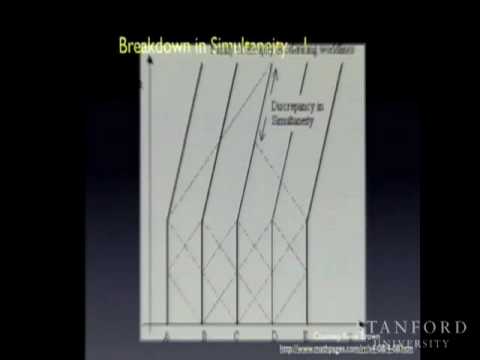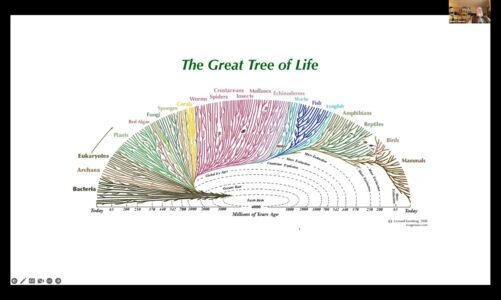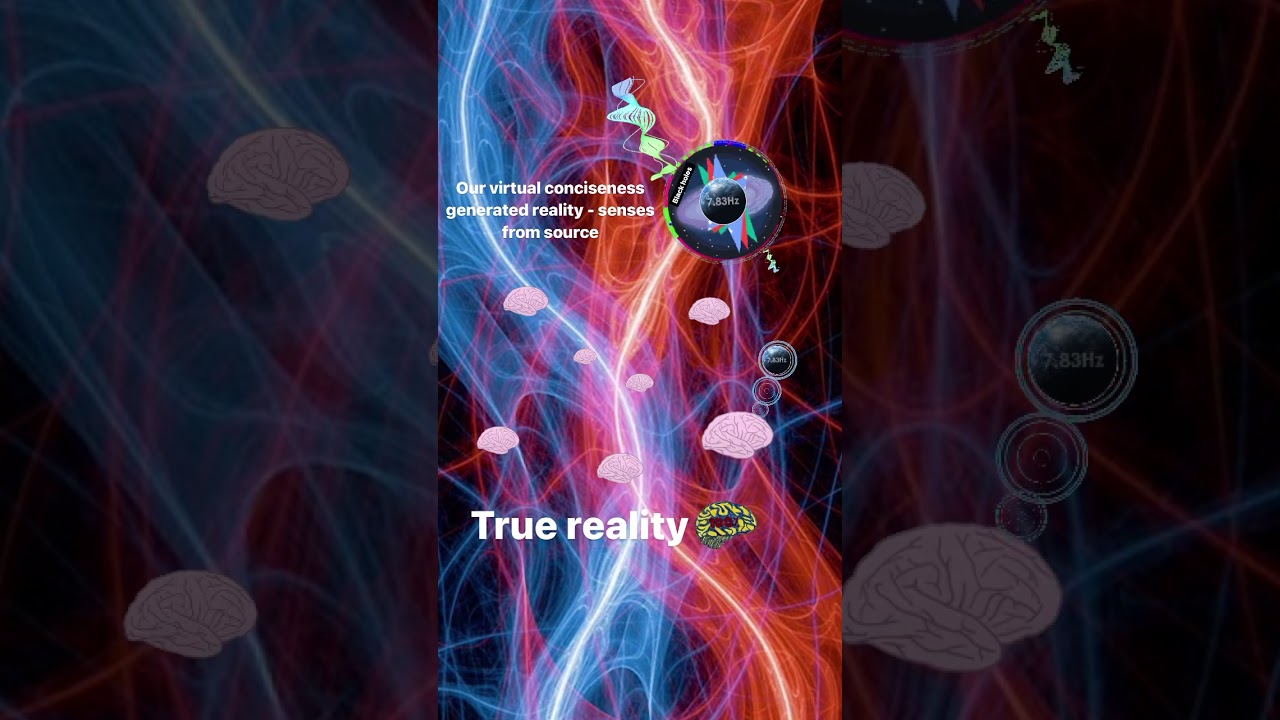Stanford
(November 11, 2009) Paul Borrill of REPLICUS Software Corporation discusses results from physics and other disciplines that investigate if and where hazards to the integrity of our information may exist due to current conceptions of time in computer science. Borrill focuses upon distributed systems, where scale, transmission rates and spatial distribution would most readily manifest anomalous behavior arising from such flaws.
Stanford University:
http://www.stanford.edu/
Stanford Engineering Everywhere:
http://see.stanford.edu/
Stanford Center for Professional Development:
http://scpd.stanford.edu/
Stanford University Channel on YouTube:
http://www.youtube.com/stanford
Source




38:00 starts compsci part
Please Check out Holochain, everyone that understands this issue !
Einstein was a genius. When and Where always have to have an association. Great video. What about distance? (I understand they are different) but how do they correlate to association/time stamp?
That pitch….
the bits I've watched have been fascinating, and I really want to be able to watch through this but the horrible high pitch noise that's over most of it makes it painful to listen too
Consider Kevin Knuth's idea of deriving Relativity and space-time from posets of events.
Entanglement in time has very far reaching implications!!! Consider the possibilities of Bell pairings between large quantities of quantum particles. At some point the prohibitions we have to "conserve the appearance of causality" in our (special) relativistic minded thinking fall down.
Hear hear! The God's Eye View idea must die die die!
"Externality" :: an example of "socializing costs".
We should work to replace the need to humans to do tasks that can be automated all levels. This would bend the resource curve of available man power.
His last remark before opening the floor to questions can not be shouted loudly enough!
A chemistry equation can be written that re-constructs a stick of dynamite after it is detonated. The atoms match perfectly.
People want to believe that time is reversible. Some mathematics show the possibility. Prove it.
Time doesn't need to be understood to make progress on designing more effective structures and systems. Time simply needs to be accepted as existing. It is apparently forward and regular (its relativity is a theory).
Oh god, I hear it now.
time is bidirectional.. now go back in time and remove my thumbs down 🙂
Giving time its partition, is one heck of an idea.
My thought is the centralized notion of time or God observer view came into being as an approximation same as classical mechanics is an approximation .
Shavit and Herlihy won Godel Prize, not Turing award 🙂
would someone please remove the mind tortuting high pitched sound throughout the whole lecture ?
Thanks Stanford.
Hooray for the Technological Singularity!!!
This problem of concurrence will no doubt bring on the singularity that much faster. Making machines that can repair themselves is just one step away from machines that can redesign themselves.
If a machine as powerful or more so, than the human brain were put to the task of redesigning itself…. It would usher in an exponential growth of technology at faster and faster rates
We will have built IGod.
=D
I hope I live to see it!
I had to jump to 1:40 for the presentation to start.
the audio in this video reminds me of the star trek episode where kirk is subjected to a high-ptiched brainwashing torture device:
Dagger_of_the_Mind_(episode)
It is unfair for a physicist to throw stones into computer science without doing homework.
Computer scietists are aware of the mentioned problems, they are! The neglected requirement in this talk is that the system should behave *predictably*. All others can be translated into this requirement.
The concurrency *is* being addressed through composition and non-determinism. See timed labeled transition systems, parallel composition, timed automata.